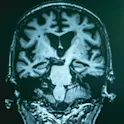
Featured news
23 Jun 2019
Brain changes linked with Alzheimer’s years before symptoms appear
Brain imaging and spinal fluid analysis could help to guide the use of future preventive treatments for Alzheimer’s; Frontiers in Aging Neuroscience

Featured news
23 Jun 2019
Brain imaging and spinal fluid analysis could help to guide the use of future preventive treatments for Alzheimer’s; Frontiers in Aging Neuroscience

Featured news
21 Jan 2019
UAlberta researchers have identified biomarkers for identifying Alzheimer’s and mild cognitive impairment in saliva samples; Frontiers in Behavioral Neuroscience

Featured news
27 Nov 2018
New research show increased brain activity in rodents fed a ketogenic or calorie-restricted diet; Frontiers in Aging Neuroscience:
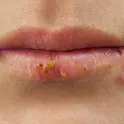
Featured news
02 Nov 2018
The virus responsible for cold sores has been strongly linked to the development of Alzheimer’s disease; Frontiers in Aging Neuroscience

Featured news
09 Aug 2018
The first study to link subjective age to biological age shows elderly people who feel younger have less signs of brain aging: Frontiers in Aging Neuroscience

Neuroscience
18 Jun 2018
Research suggests that merely having a larger social network can positively influence the aging brain: Frontiers in Aging Neuroscience

Health
05 Mar 2018
Research sheds light on a new marker of aging that could help predict the risk of developing age-related disease and death: Frontiers in Aging Neuroscience

Featured news
15 Dec 2017
3,350+ articles published this year, from 17,400+ authors
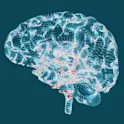
Neuroscience
24 Jul 2017
Brains from patients with Alzheimer’s disease show changes in bacterial populations compared with healthy brains.

Neuroscience
24 Jul 2017
Elderly female yoga practitioners have greater cortical thickness in the left prefrontal cortex, suggesting that yoga may protect against cognitive decline.

Neuroscience
19 May 2017
New study opens up new area of preventative research for diseases like Alzheimer’s: Targeting age-dependent protein aggregates as possible therapeutic targets.
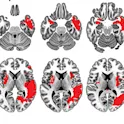
Neuroscience
10 Feb 2017
This case report documents the extraordinary resilience of a woman in Argentina who endured multiple strokes.
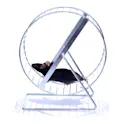
Neuroscience
13 Dec 2016
Engaging in voluntary physical exercise helps protect the brain from the damaging effects of a stroke, shown in mice. — By Tania Fitzgeorge-Balfour, Science Writer, Frontiersin.org The after-effects of a stroke can be life changing. Paralysis, speech problems and memory loss occur in varying degrees of severity, depending on the location and amount of brain tissue damage. How far a stroke patient can recover is largely determined by the ability of the brain to reorganize itself. Understanding what can improve this ability is therefore essential in developing the best therapies for rehabilitation. Voluntary physical exercise is known to have a positive effect on a person’s overall well-being. It delays memory loss in old age and improves cognitive ability. A new study, published in the open-access journal Frontiers in Aging Neuroscience, has linked the positive effects of exercise on the brains of mice to their better recovery after a stroke. “Our study suggests that physical exercise can be used as a preventive, as well as a therapeutic approach to aid recovery after a cortical stroke,” says Dr. Evgenia Kalogeraki, who conducted this research at the in the laboratory of Prof. Dr. Siegrid Löwel, at Georg-August-University, Germany. Previous research of the Löwel […]
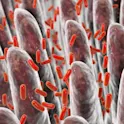
Health
10 Nov 2016
In a randomized double-blind trial, scientists show for the first time that dietary supplementation with daily dose of probiotic bacteria over a period of just 12 weeks is sufficient to yield a small but significant improvement in the cognitive performance of Alzheimer’s patients. For the first time, scientists have shown that probiotics — beneficial live bacteria and yeasts taken as dietary supplements — can improve cognitive function in humans. In a new clinical trial, scientists show that a daily dose of probiotic Lactobacillus and Bifidobacterium bacteria taken over a period of just 12 weeks is enough to yield a moderate but significant improvement in the score of elderly Alzheimer’s patients on the Mini-Mental State Examination (MMSE) scale, a standard measure of cognitive impairment. Probiotics are known to give partial protection against certain infectious diarrheas, irritable bowel syndrome, inflammatory bowel disease, eczema, allergies, colds, tooth decay, and periodontal disease. But scientists have long hypothesized that probiotics might also boost cognition, as there is continuous two-way communication between the intestinal microflora, the gastrointestinal tract, and the brain through the nervous system, the immune system, and hormones (along the so-called “microbiota-gut-brain axis”). In mice, probiotics have indeed been shown to improve learning and […]
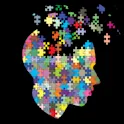
Neuroscience
07 Apr 2016
By K.E.D. Coan, Science Writer Alzheimer’s disease is the sixth leading cause of death in the U.S., according to the Alzheimer’s Association. There is no cure and no way to slow or prevent the illness. But, patients can still benefit from both physical and cognitive rehabilitation, and researchers are learning that mimicry may be a useful tool to help them regain lost abilities. “Alzheimer’s patients are still able to voluntarily imitate the movement of an object, as well as that of a human being” said Dr. Ambra Bisio. “If this ability is still in place, a patient could relearn how to perform actions that have become difficult due to the disease.” Dr. Ambra Bisio is a postdoctoral researcher in the Department of Experimental Medicine at the University of Genoa. She specializes in how the brain responds to movement, particularly somebody else’s movements. In a collaboration with Professor Thierry Pozzo at INSERM-U1093, she showed that Alzheimer’s patients can still mimic a simple gesture by a human or a moving dot on a computer screen, suggesting that such exercises may complement current therapeutic strategies. Their results were published in Frontiers in Aging Neuroscience. Copying what someone else is doing is a basic […]
Get the latest research updates, subscribe to our newsletter